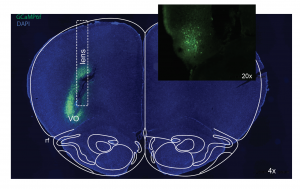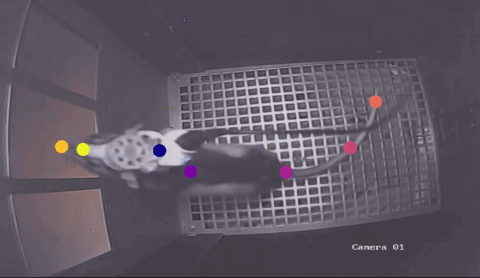
We have several projects that span the study of basic mechanisms to more preclinical (disease) model approaches involving frontal cortex, amygdala, striatum, as well as rhinal cortex and posterior parietal cortex. Using a combination of novel behavioral paradigms, DREADDs, in vivo electrophysiology, and in vivo 1P calcium imaging, our lab seeks better resolution of diverse neural processes that support flexible learning and value-based decision making.
Cortico-amygdalar substrates of adaptive learning under uncertainty. One goal of the lab is to determine roles for different cortico-amygdalar pathways in action- and stimulus-based learning under uncertainty, using a mechanistic computational model as a guiding framework.
Circuits supporting effort- delay- and risk- based decisions and decision confidence. How is the value of one option computed relative to another? Are choices involving quality vs. quantity mediated by these circuits in the same way? How does the brain accumulate evidence of stimulus value over time? We use both naturalistic foraging and operant-based approaches to probe these questions.
Neural adaptations following chronic drug or alcohol experience. Other ongoing projects are aimed at determining how neural circuits are differentially affected by chronic methamphetamine and alcohol experience, how systems-level interactions may change to bias learning and value-based decisions.
